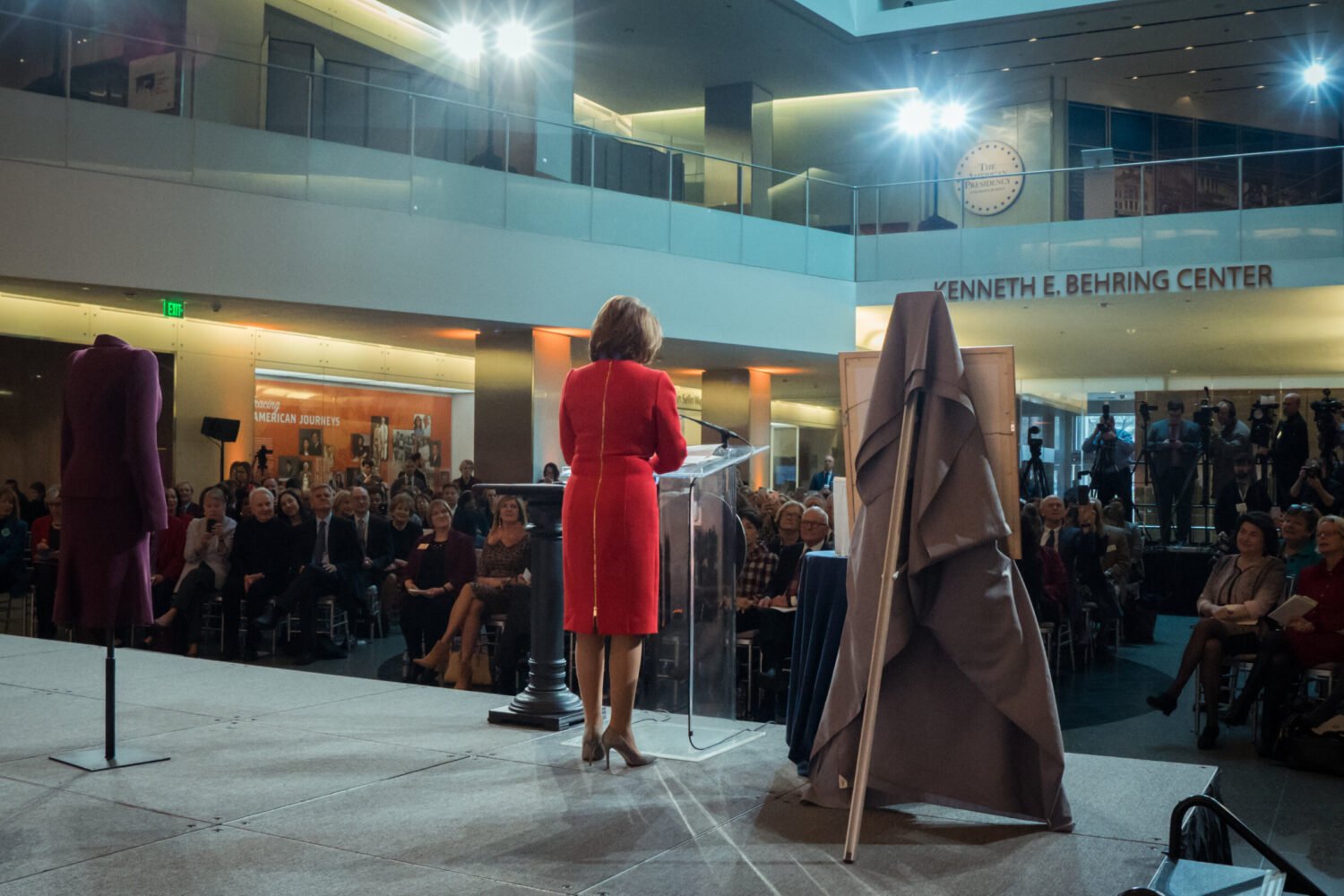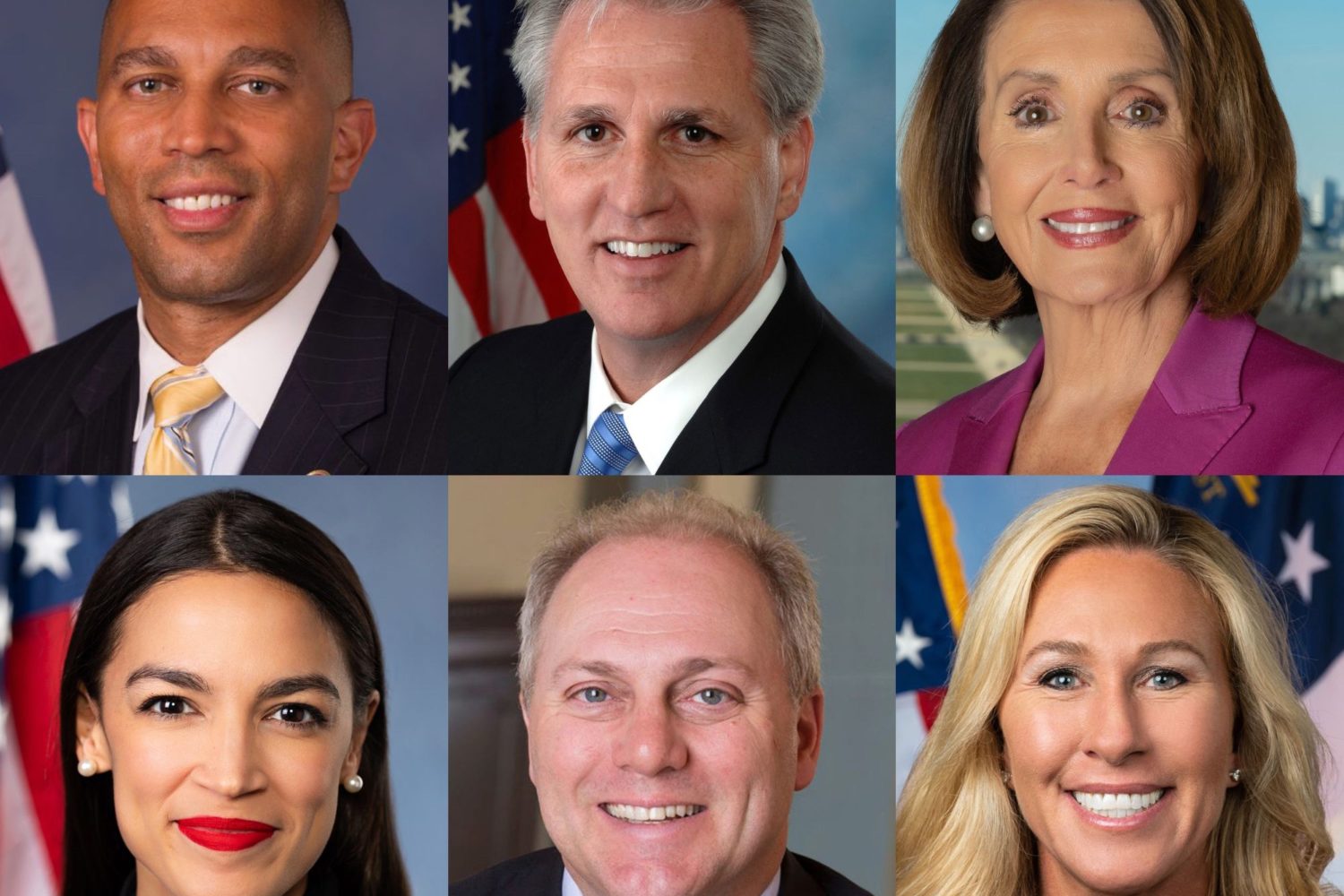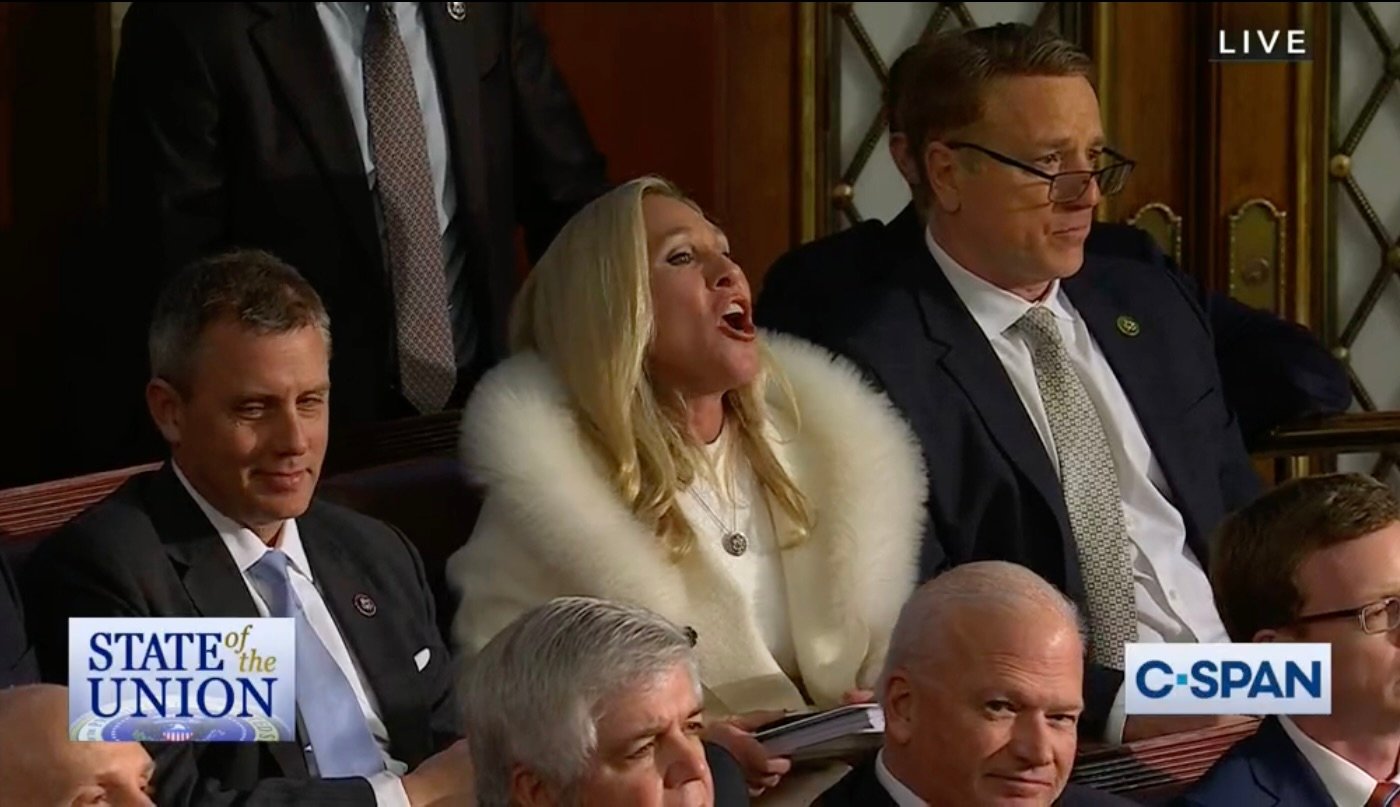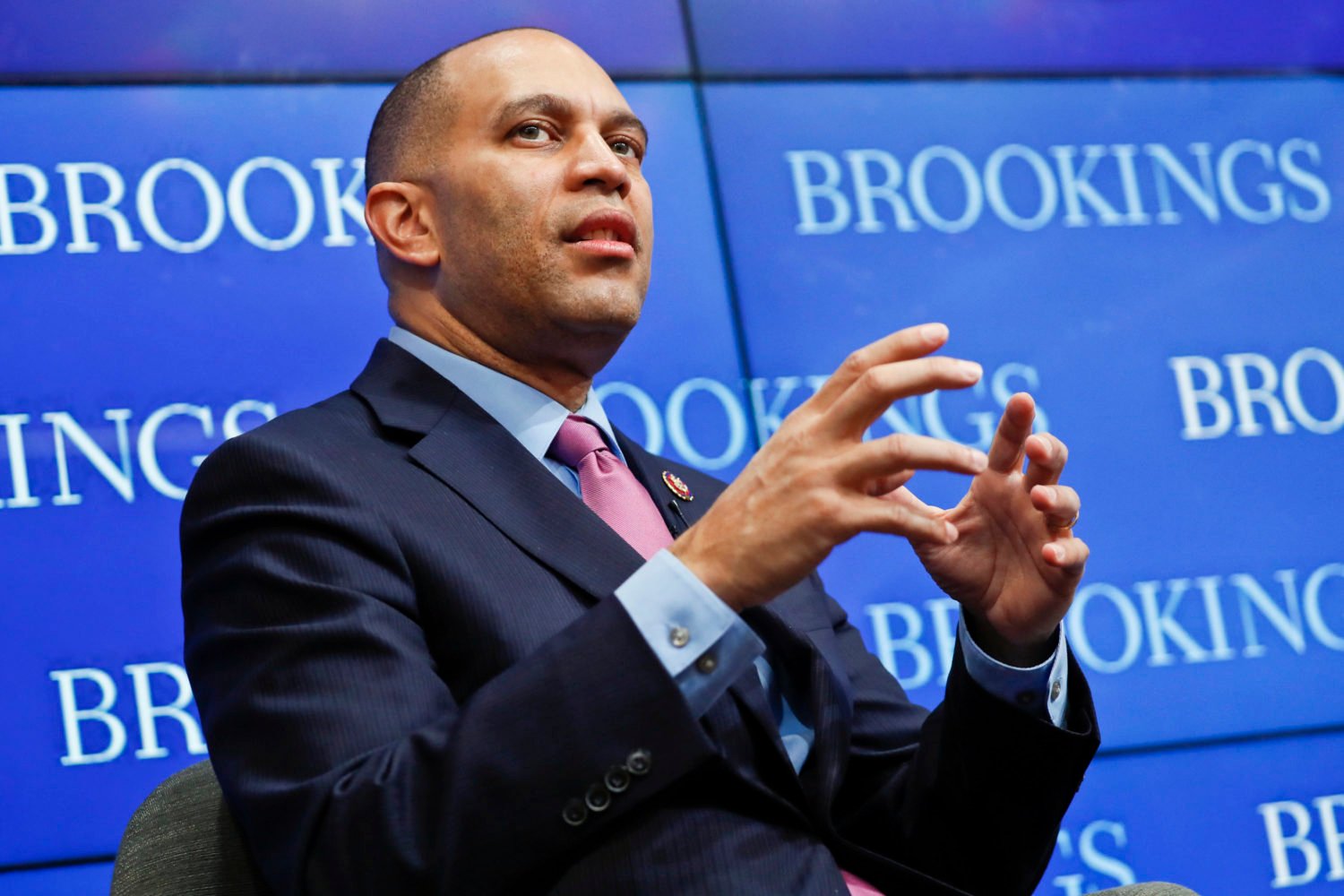It’s official: Democrats have completely blown the messaging around coronavirus.
I say “official,” because a new ABC poll shows that 55 percent of Americans approve of the way President Trump is handling coronavirus, while 42 percent disapprove. Those numbers are a reversal from last week, when 54 percent said they disapproved. Trump’s overall approval has been inching up this week. Perhaps now we know why.
Several smart people have wondered aloud: How could this be? How can it be, even when Trump’s own agencies were sounding the alarm that a pandemic would lead to lethal shortages? Even when the White House delayed getting coronavirus test kits past when they could have? Even when they stopped hospitals from developing their own tests, when they could have? Even when Trump fired the pandemics team at the White House? Even when he was ignoring his former advisers’ desperate pleas? Even when he lied about the pandemic, over and over and over and over and over and over and over? Even when, as late as this month, he claimed that salvation was just around the corner, a falsehood that could kill Americans? Even when states agree we still don’t have clear guidance from Washington?
Why would so many Americans overlook this? Could it really be true that Trump’s daily briefings, in which he insists (in between nonsensical rants) that he has everything under control, are making a lasting impact?
The answer is yes, and the reason is appallingly simple: So far, there’s no one telling Americans any different.
Politics, like viruses, are defined by windows of exposure. People adopt a frame of reference, and they keep it. After 9/11, Americans were far too overwhelmed and grief-stricken to process the mountain of warnings the Bush administration had overlooked. In the case of Hurricane Katrina, Democrats maneuvered, cuttingly but sensitively, to demand accountability from an AWOL President. The former event is still remembered as Bush’s finest hour; the latter tarnished him permanently.
Trump and his party would much sooner be accused of being bigots than abetting murder.
Let’s examine the most recent window of exposure—the past eight days. On March 12, the New York Times ran the following headline: “The President as Bystander: Trump Struggles to Unify a Nation on Edge.” Anyone who read this would have thought, just as I did, that Trump’s goose was cooked.
But in the next eight days, Americans heard little from Nancy Pelosi beyond bill negotiations. They heard little in the way of indictments from Joe Biden. They’ve heard nothing from the DNC. The scattered criticisms on the Senate floor have been about passing bills, not failures of leadership.
What Americans did hear were comments like David Axelrod’s, who said that “now doesn’t seem to be the moment” for attacks on Trump. They heard from California Governor Gavin Newsom, who said Trump’s response has been “everything that I could have hoped for.” And bafflingly, they heard from Rep. Ilhan Omar, who overlooked the hundreds of lies and missteps that got us here in order to highlight a handful of obvious and all-too-late steps:
Politics aside, this is incredible and the right response in this critical time. 👏🏽 https://t.co/MUzGkAxNaO
— Ilhan Omar (@IlhanMN) March 19, 2020
In those eight days, elected Democrats finally got angry—but it wasn’t over the untold thousands of Americans who are about to die needless deaths. It was over Trump’s use of a racist term to describe the virus. In a speech, Newsom called out Trump’s comments, as did Omar and a tide of Democratic officials, including Pelosi.
The Washington press corps is nothing if not conflict-oriented, so “Chinese virus”—and not Trump’s botched response to it—became the feud that Pelosi handed them. Understandably, they quickly picked up the story. So did Republican Senators like Chuck Grassley—a sure sign that Republicans couldn’t believe their good fortune that this was the fight Democrats chose to pick. Trump and his party would much sooner be accused of being bigots than accused of abetting murder.
Even the most recent scandal du jour—revelations that two Republican senators cashed in on their stock rather than warn the country of the coming catastrophe—has missed the mark. Yes, all Americans should be outraged. But Democrats risk turning these two forgettable senators into the national face of a galactic scandal—instead of their leader, whose directives and marching orders they were following in downplaying the virus in the first place.
Is selling stock outrageous? You bet. Is “Chinese virus” racist? Of course it is. But I suspect the reason Democrats like Newsom latched onto that particular controversy was subtler, and easy to miss. These governors understand that millions of their citizens depend on an unstable actor, a man who has already threatened blue states before. Using satin gloves on Trump’s virus response, and using boxing gloves on his racist remarks, has allowed Newsom—and Omar, who hails from a would-be purple state in 2020—to thread the needle: appeasing their Democratic base, but not biting too hard on the hand that feeds, during a time when any feud with the White House could cost thousands of lives.
But while Newsom and others are doing what they can to keep their political fortunes alive, they have unwittingly given a boost to Trump’s in the bargain.
When you’re handing a lifeline to your political opponent, you’re entitled to bring out the rhetorical guns.
Here is what Americans need to hear: pure, unadulterated anger. Fury. Rage. Presumably, Democrats are worried they will be accused of “politicizing” the virus; and they will. They’re also worried that this charge will carry a hefty electoral price. It won’t. As I and others have argued, it is the job of opposition parties to litigate crisis response, passionately but factually. In 2014, Republicans proved themselves adept at ginning up fears over the Ebola virus. Not only did they not “pay a price,” they won—taking back the Senate and ushering in the era of Merrick Garland and Brett Kavanaugh. Today, coronavirus cases have surpassed 15,000. During the Obama administration, the number of U.S. Ebola cases topped out at eleven.
So what, specifically, does getting angry look like? It involves a scathing, unblinking indictment of a would-be autocrat and his appeasers; a reminder of the ineptitude that always goes hand-in-glove with authoritarianism. Congress is in the midst of passing a trillion-dollar stimulus bill; when it does, that might be a good time for Nancy Pelosi or Joe Biden to call a national press conference, and remind the the public why we’re passing it. When you’re handing a lifeline to your political opponent, you’re entitled—obligated, in fact—to bring out the rhetorical guns.
Are Democrats capable of this? Recent history suggests so. I don’t know how to engineer the perfect image of accountability, indictment and leadership in times of crisis. But like pornography, I know it when I see it. It looks like this:
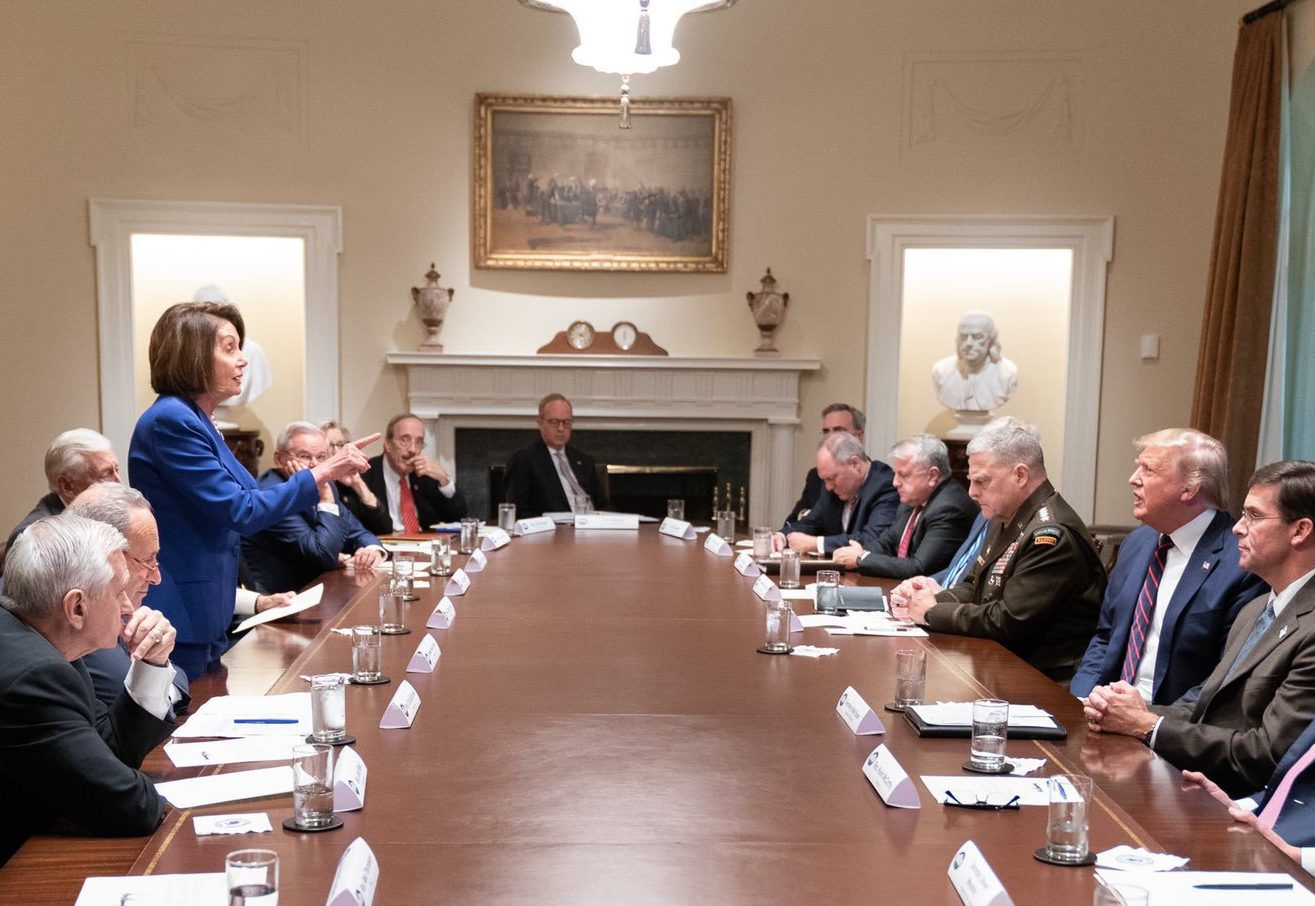
That’s a powerful image, and Trump’s team is hoping that Americans won’t see a reprise of it in 2020. In fact, they’re counting on it: Today, the Wall Street Journal reports that Trump’s reelection campaign will focus on “crisis leadership.” That’s about as plausible as a crack addict running on abstemiousness and self-control. But they have Democrats to thank for making it possible.
If liberals need help getting angry, I know one place they can look: The doctors who are being forced to fight this conflagration, after years of being ignored. One of them is William Hanage, an associate professor at Harvard.
“We were not outwitted, outpaced or outflanked. We knew what was coming,” Hanage wrote this month. “We just twiddled our thumbs as the coronavirus waltzed in.”
I’m certain Hanage is busy. But I know an American political party that would be smart to hire him.







